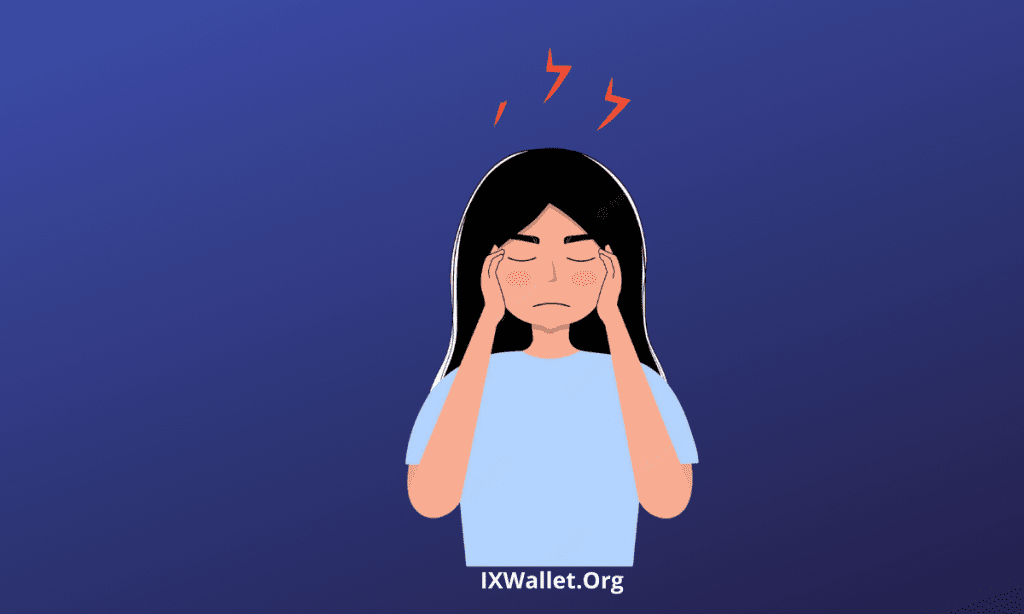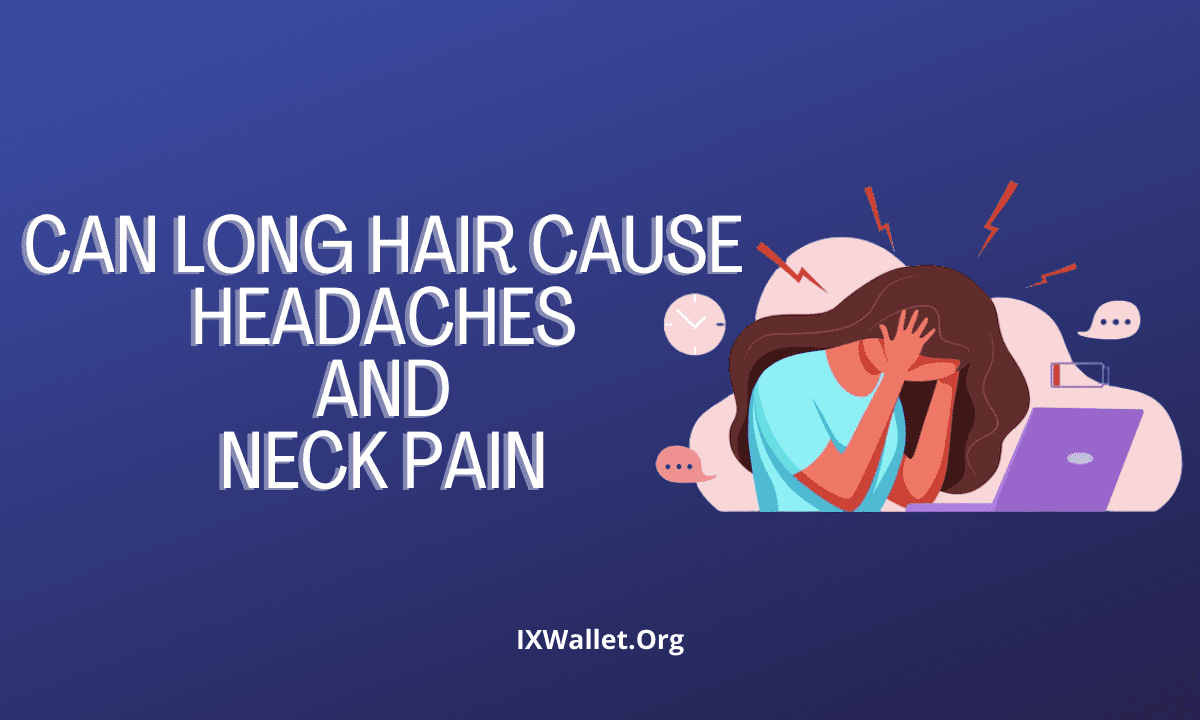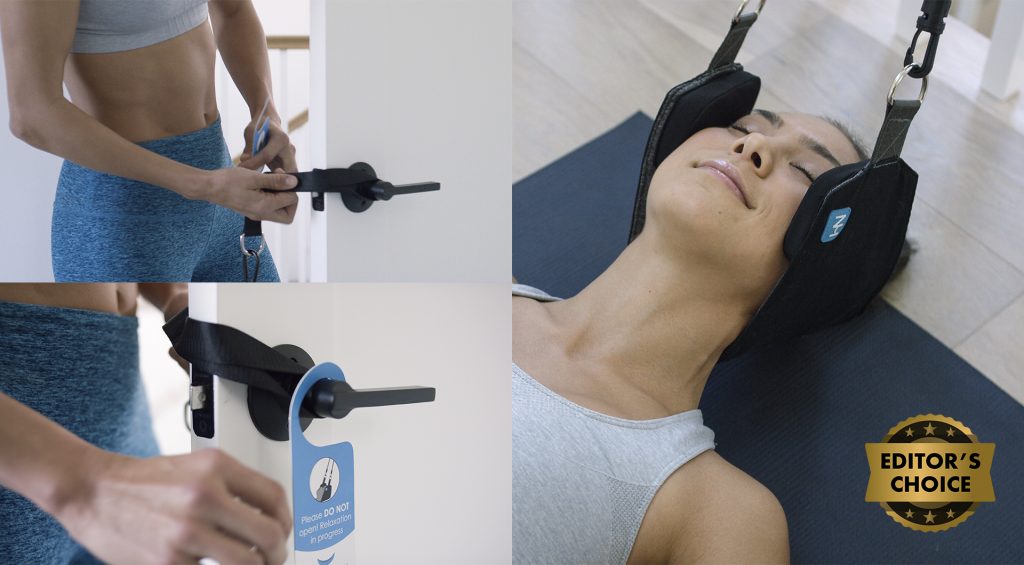Long hair signifies femininity and sophistication. Long hairstyles extend back to the time of the early Greeks and Romans. In reality, ladies wore their hair significantly longer than males did in Ancient Greece.
In the eleventh and twelfth centuries, the long hair custom grew in popularity and spread among French and English males. Even males sported long hair back then, despite society’s preference for shorter hair.
The passage of time has altered the perception of long hair, and throughout history, ladies wore their hair long. However, this does not preclude guys from wearing this style. Just consider the 1980s rock & roll era.
Although long hair is the ideal hairstyle for many people, especially women, there are disadvantages to this haircut. Long hair poses several difficulties, most notably the so-called “long hair headaches.”
While it is common knowledge that styling long hair can be difficult, this feminine characteristic
can also cause discomfort.
There are numerous reasons why long hair causes discomfort, yet few individuals are aware of their daily errors. For instance, a ponytail that is overly tight can cause headaches. And some of them are serious.
As strange as the question’s title may sound, the sad reality is that long hair can in fact cause neck pain. Everything that occurs within the human body has a scientific explanation.
The Medical Connection Between Long Hair And Pain
Because the body’s tissues are interrelated, long hair can cause discomfort. While tying the hair really tightly, the scalp tissue begins to feel pressure.
This will eventually result in neck pain, as discussed in this article.
Having long hair has its drawbacks, and severe headaches can be a legitimate issue. Cutting off the gorgeous hair is not a solution for everyone, nor is it the most effective technique to alleviate headaches or back pain.
In all likelihood, women will not need to take dramatic measures such as cutting their hair short.
By gaining a basic understanding of this sort of discomfort, men and women can avoid the leading causes of headaches. Understanding the medical facts will make things easier, thus this article is required reading for anyone interested in learning everything about style and caring for long hair.
Can Long Hair Genuinely Cause Headaches?

Those with long hair have definitely endured painful headaches. They may have been considering the weight of the hair and attributing the excruciating agony to it. However, hair length has little direct relationship with headaches.
Therefore, there is no definitive response to the primary question, “Can long hair cause neck pain and headaches?”
The adoption of a lengthy hairdo will not result in headaches. However, having long hair will force the majority of readers to do something that will cause them significant discomfort.
The arguments will be analysed one by one in the table below. However, the first possibility is the least probable.
Reasons Why Neck Pain And Headaches Are Related To Long Hair
Let’s take a closer look at everything to get a full understanding of the subject.
1. Heavy Hair
The first reason people attribute their neck pain and headaches to their long hair is the weight. I will explain why it is highly unlikely that the hair alone would cause so much agony.
Honestly speaking, even extremely long hair does not weigh a great deal (2). According to experts, a hair that reaches the floor weighs around 350 grams, 12 ounces, or 0.77 pounds.
Those of you who have been curious about the exact weight of the hair can rest assured that the most recent figures are accurate. As a result, the scalp can manage and resist this quantity of hair.
Second, hair typically grows slowly, so it is unlikely that the scalp will be unable to accommodate all the hair. Due to the gradual development, the muscles are quickly straightening, which ultimately aids in holding the head up and adjusting to the weight of the hair.
Last but not least, presuming that hair density is the cause of headaches entails enduring agony throughout the day. No one would ever again consider having long hair if the discomfort was constant. It is difficult to believe that weight is rarely a problem.
Therefore, unless someone suffers continuous headaches, regardless of their hairdo, it is unlikely that hair weight is the cause of scalp or neck difficulties.
In short, the weight of the hair cannot directly alter these pains. However, the following factors are more likely to induce a headache.
2. Styling The Hair Against The Fibre
The incorrect styling of long hair is another cause of the infamous long hair headache. Although women like experimenting with various hairstyles, discomforting scalp problems may develop.
After letting your guard down and experiencing the anguish, it is simple to recognise this type of pain.
The specific cause of this discomfort is tugging the hair roots in a direction that does not allow them to remain.
In a couple of hours, you will experience pain. Some people will experience headaches if they let their hair dry in a particular manner, then style it in a different direction or pull it in a different direction.
3. Faking A Facelift
Some people have a propensity of faking a facelift, even if it may not be that common among you. This method is visibly associated with hair root tension and discomfort. This time, the hair is placed in a different position and pulled back far too tightly, in contrast to point 2.
This is the origin of the term “false facelift.” The renowned ponytail is one of the most popular and fashionable hairstyles that may cause headaches. Ponytails are always a quick and convenient method to style your hair.
While ponytails, whether high or low, are incredibly stylish, the scalp may become irritated and sore over time.
Ponytail hairstyles will eventually weaken the hair’s roots and cause “traction alopecia”
This word refers to hair loss caused by the act of tugging. Therefore, if the hair roots begin to hurt significantly, you should be aware that this could be caused by gripping your hair so tightly.
4. Neck Muscles Straining
Muscle straining is another reason. The long hair might be caused by the muscles in the neck. There are two ways this can happen:
- The first style is a low, tight twist. Although the twisted bun is not as popular as ponytails, there is one thing we can say for certain about this hairstyle: after tightly twisting the hair, the sensitive neck muscles will be rotated. In a matter of minutes, the muscles will begin to ache due to the onset of tension.
- The second cause of muscle stress is the hairstyle, which may cause the head to become unbalanced. Typically, the updo requires additional work from the neck muscles. Over time, this will result in head disturbances that differ from the norm.
When all the updos are put into one big bun, headaches and neck pains are more likely to occur.
5. Earring or Headbands
The majority of individuals who complain about headaches are likely experiencing root pain. Also known as “hair cramps,” women claim that every single hair is causing them pain.
Others will place this discomfort on their earring, resulting in an irritating headache. Although this assertion may seem impossible, these individuals are correct.
Why are heavy earrings painful? Anatomically, none of the muscle groups around the scalp possess pain fibres, yet they are related to tissues.
When wearing earrings or headbands that are too tight, the hair will become tangled and irritate the muscles.
The swingy updo is not the only thing leading to this type of pain; hefty earrings or fantastic headbands can also be the source of the pain over time, despite their aesthetic appeal.
However, few individuals considered their earrings to be the major cause of headaches. During this time period, there may be a correlation between ear accessories and pain.
Earrings can exert identical tension on the connective tissue. Some research may even indicate that migraines are caused by the sensitivity of the skin surrounding the face, ears, and scalps. Although it is difficult to determine if earring hypersensitivity is the major cause of headaches, it can indicate an impending migraine.
What is the proper course of action? There is no need for a lengthy study to explain the obvious and straightforward activities that may be taken; first, removing the ponytail or headband for as little as 30 minutes can have an immediate and favourable influence on headaches. In certain circumstances, even 10 minutes of hair loss might relieve tension on the scalp.
In general, the thicker the hair and the heavier the ear accessories, the greater the likelihood of this sort of headache. As a result, one of the finest things to do is to avoid or reserve big earrings for special occasions. Additionally, save the tight updos for other occasions, or avoid wearing them for too long.
6. Ponytails
Finally, one of the most frequent causes of headaches is the cherished ponytail. Here is what occurs during the hair-tightening process. A person can feel allodynia or an innocuous stimulation that the body interprets as actually painful.
On the contrary, it is improbable to get pain from a simple brushing or light touch of the hair. During allodynia, however, the skin becomes excessively sensitive, and even a light touch to the hair will cause acute discomfort.
Even specialists believe that Allodynia is associated with another chronic ailment known as fibromyalgia.
Referring to tight ponytails, these hairstyles might cause severe headaches due to an overly sensitive scalp.
It is reassuring to know that the hair on the outside of the head has nothing to do with pain; yet, the scalp, where hair is entrenched, contains millions of pain-sensitive nerves.
This explains why a pulled-back ponytail can irritate the scalp and hair follicles to such an extent.
Tips and Tricks To Avoid Neck Pain And Headaches
First of all, congrats on making it to this section of the article and thoroughly comprehending the causes of chronic hair headaches. When growing out one’s hair, it is crucial to know how to avoid a severe headache.
While many women’s initial inclination is to cut their long hair, this is not the ideal answer.
It would be a shame not to take advantage of the prolonged highlights, despite the fact that they may demand more care, attention, and style time. There is some validity to the belief that long hair exacerbates daily headaches. However, this does not exclude us from wearing a lengthy headdress.
Attention and a little effort are all that is required to prevent headaches. Here are some of the most effective tips for women with long hair:
Tip no 1: Avoid Very Tight Ponytails
Ponytails are one of the most common causes of headaches in people with long hair. Once they have completely contracted, they are pulling at the roots.
As discussed previously, the hair contains millions of nerves at the scalp level. Over time, this can cause a great deal of pain. For individuals who are already susceptible to headaches, physicians advise letting their hair down or loosening their daily ponytail.
Tip no 2: Avoiding or Easing Off The Hair Extensions
This is a matter of pure physics: the heavier the hair at the ends, the greater the strain at the roots. As a chain of weakness, the more intricately the roots are ripped out, the more pain you will experience.
In addition to causing daily severe headaches, thick hair extensions will cause some hair loss. However, there are still options for individuals who cannot support themselves without these synthetic hair extensions.
Removing hair extensions gradually or applying them less frequently are among the most important considerations to make.
Tip no 3: Keeping the hair trimmed
Growing your hair out is a waste of time if you can’t maintain its health as it becomes longer. Trimming the hair will not only make it seem better, but it will also provide tremendous relief for the roots. However, if the hair is heavy, thick, and really long, then people will suffer stress all the way up to the level of the neck.
However, the weight of your hair may not be the only factor contributing to chronic pain and poor posture, particularly for people who work in offices. Finding a strategy to hold your hair in the manner in which you are the most at ease is an excellent piece of advice in this regard.
Keeping a ponytail at the same height as the neck, for instance, can be a clever way to ensure that the weight is distributed equally.
Tip 4: Use Neck Hammock
When we experience discomfort in the region of the neck, we frequently take medication or get a light massage. The majority of people turn to the balm for relief from the discomfort. However, if people are able to discover the cause, then they will quickly feel relief from the pain in their neck. Neck pain can be caused by sleeping or lying down on a bed with poor posture, which can make the problem worse.
Another potential contributor is spending the majority of the day seated in a chair. Therefore, you can use the neck hammock to relax the muscles in your neck while you are there. In addition to that, you can finally put an end to the discomfort in your neck. Your posture will improve and your body will remain relaxed thanks to the neck hammock. Additionally, this product works in the region of the muscles.
You can stretch out the muscles in your neck and achieve a state of relaxation by using this hammock as a support for your head and neck. In addition to this, the cervical vertebrae are allowed to expand, which results in an incredible increase in blood flow. This process of circulation lessens the likelihood of experiencing neck pain.
Additionally, by making use of this neck hammock, you will have an easier time oxidising the muscles, nerves, and ligaments that are located in your neck. The treatment as a whole helps to lessen the pain, and you won’t have to worry about anything else.
In a nutshell
It is appropriate, in the end, to provide an answer to the primary question. Is it true that having long hair might lead to headaches and neck pain? Either way, yes or no. In most cases, hair is not particularly heavy enough to cause bottomless discomfort. There is, however, a strong correlation between having long hair and experiencing neck pain as well as headaches.
Considering all the pain fibers at the scalp level, it is wise to avoid wearing the hair tightly. In that case, you will cause direct damage to the nerves in the brain, and as a consequence, the nerves in the level of the neck. The use of a tight ponytail while attempting to create a twisted bun and a face-lift might slowly but certainly lead to neck discomfort.
Your neck is connected to the tissue of your scalp by this connection. This is the primary cause of discomfort in the neck. You can alleviate this discomfort by using the neck hammock as directed. Altering your hairdo or even letting your hair down a little bit might also help alleviate this ache.
There are a variety of straightforward methods that may be utilised to alleviate stress, like reducing the amount of hair extensions one uses and the frequency with which one gets their hair cut. The most exciting part? A woman with long hair can nevertheless project an image of femininity without making too many concessions.


